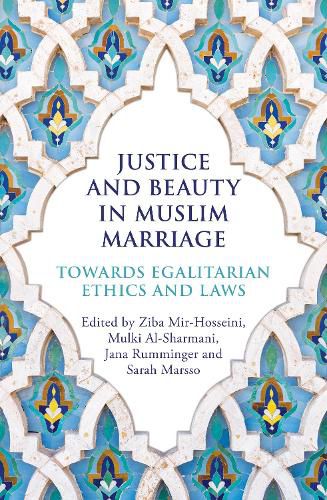Readings Newsletter
Become a Readings Member to make your shopping experience even easier.
Sign in or sign up for free!
You’re not far away from qualifying for FREE standard shipping within Australia
You’ve qualified for FREE standard shipping within Australia
The cart is loading…






The model of marriage constructed in classical Islamic jurisprudence rests on patriarchal ethics that deny gender equality and privilege men. Notwithstanding reforms introduced over the past few decades, this worldview persists in many contemporary Muslim family laws and in gender norms in various contexts. Yet the changing realities of Muslim families, related to gender roles and the needs of spouses and their children, show the limitations of such ethics and laws.
In this volume, scholars explore how egalitarian Muslim marriages and gender relations can be supported from within Islamic tradition. Brought together by the Musawah movement for equality and justice in the Muslim family, they examine ethics and laws related to marriage from the perspective of the Qur'an, Sunnah, Islamic legal tradition, historical practices and contemporary family law reform processes. Together they conceptualise how contemporary Muslim marital relations can be grounded in equality, mutual well-being and the core Qur'anic principles of ‘adl (justice) and ihsan (goodness and beauty).
$9.00 standard shipping within Australia
FREE standard shipping within Australia for orders over $100.00
Express & International shipping calculated at checkout
The model of marriage constructed in classical Islamic jurisprudence rests on patriarchal ethics that deny gender equality and privilege men. Notwithstanding reforms introduced over the past few decades, this worldview persists in many contemporary Muslim family laws and in gender norms in various contexts. Yet the changing realities of Muslim families, related to gender roles and the needs of spouses and their children, show the limitations of such ethics and laws.
In this volume, scholars explore how egalitarian Muslim marriages and gender relations can be supported from within Islamic tradition. Brought together by the Musawah movement for equality and justice in the Muslim family, they examine ethics and laws related to marriage from the perspective of the Qur'an, Sunnah, Islamic legal tradition, historical practices and contemporary family law reform processes. Together they conceptualise how contemporary Muslim marital relations can be grounded in equality, mutual well-being and the core Qur'anic principles of ‘adl (justice) and ihsan (goodness and beauty).